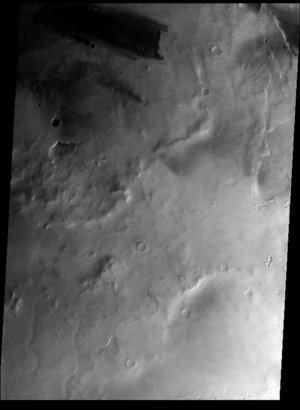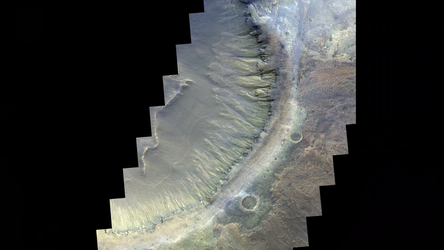Accept all cookies Accept only essential cookies See our Cookie Notice

About ESA
The European Space Agency (ESA) is Europe’s gateway to space. Its mission is to shape the development of Europe’s space capability and ensure that investment in space continues to deliver benefits to the citizens of Europe and the world.
Highlights
ESA - United space in Europe
This is ESA ESA facts Member States & Cooperating States Funding Director General Top management For Member State Delegations European vision European Space Policy ESA & EU Space Councils Responsibility & Sustainability Annual Report Calendar of meetings Corporate newsEstablishments & sites
ESA Headquarters ESA ESTEC ESA ESOC ESA ESRIN ESA EAC ESA ESAC Europe's Spaceport ESA ESEC ESA ECSAT Brussels Office Washington OfficeWorking with ESA
Business with ESA ESA Commercialisation Gateway Law at ESA Careers Cyber resilience at ESA IT at ESA Newsroom Partnerships Merchandising Licence Education Open Space Innovation Platform Integrity and Reporting Administrative Tribunal Health and SafetyMore about ESA
History ESA Historical Archives Exhibitions Publications Art & Culture ESA Merchandise Kids Diversity ESA Brand CentreLatest
Space in Member States
Find out more about space activities in our 23 Member States, and understand how ESA works together with their national agencies, institutions and organisations.
Science & Exploration
Exploring our Solar System and unlocking the secrets of the Universe
Go to topicAstronauts
Missions
Juice Euclid Webb Solar Orbiter BepiColombo Gaia ExoMars Cheops Exoplanet missions More missionsActivities
International Space Station Orion service module Gateway Concordia Caves & Pangaea BenefitsLatest
Space Safety
Protecting life and infrastructure on Earth and in orbit
Go to topicAsteroids
Asteroids and Planetary Defence Asteroid danger explained Flyeye telescope: asteroid detection Hera mission: asteroid deflection Near-Earth Object Coordination CentreSpace junk
About space debris Space debris by the numbers Space Environment Report In space refuelling, refurbishing and removingSafety from space
Clean Space ecodesign Zero Debris Technologies Space for Earth Supporting Sustainable DevelopmentLatest
Applications
Using space to benefit citizens and meet future challenges on Earth
Go to topicObserving the Earth
Observing the Earth Future EO Copernicus Meteorology Space for our climate Satellite missionsCommercialisation
ESA Commercialisation Gateway Open Space Innovation Platform Business Incubation ESA Space SolutionsLatest
Enabling & Support
Making space accessible and developing the technologies for the future
Go to topicBuilding missions
Space Engineering and Technology Test centre Laboratories Concurrent Design Facility Preparing for the future Shaping the Future Discovery and Preparation Advanced Concepts TeamSpace transportation
Space Transportation Ariane Vega Space Rider Future space transportation Boost! Europe's Spaceport Launches from Europe's Spaceport from 2012Latest
First images from ExoMars
Thank you for liking
You have already liked this page, you can only like it once!
A showcase of some of the first and highest resolution images acquired by the Colour and Stereo Surface Imaging System (CaSSIS) on the ExoMars Trace Gas Orbiter on 22 November 2016.
The first image sequence shown was taken at a distance of 5300 km with a resolution of 60 m/pixel, about 44 minutes before closest approach. It illustrates how CaSSIS acquires data by taking images in colour simultaneously: at panchromatic, red, near-infrared and blue wavelengths.
A 3D reconstruction of a small area in Noctis Labyrinthus is also presented, based on a stereo pair of images taken, and presented with an altitude map with a resolution of less than 20 m.
Next, a spectacular high-resolution image sequence acquired during closest approach of 235 km altitude is presented. At this time, the spacecraft was flying over the Hebes Chasma region. The highest resolution data acquired is at 2.8 m/pixel. The flyover is shown at half the speed at which the data were acquired.
Then, an image swath about 25 km wide is shown of Arisa Chasmata, which is located on the flanks of a large volcano on Mars named Arsia Mons.
Finally, a close up of a 1.4 km-diameter crater sitting in the rim of a much larger crater near the Mars equator is presented. This image was acquired at 7.2 m/pixel.
This video was produced by the CaSSIS camera team and the University of Bern.
-
CREDIT
ESA/Roscosmos/ExoMars/CaSSIS/UniBE -
LICENCE
CC BY-SA 3.0 IGO or ESA Standard Licence
(content can be used under either licence)
-
Close-up
-
-
-
-

Flying over Mellish crater

TGO’s first image of Mars – 13 June 2016

First ExoMars stereo reconstruction

Mars close-up















 Germany
Germany
 Austria
Austria
 Belgium
Belgium
 Denmark
Denmark
 Spain
Spain
 Estonia
Estonia
 Finland
Finland
 France
France
 Greece
Greece
 Hungary
Hungary
 Ireland
Ireland
 Italy
Italy
 Luxembourg
Luxembourg
 Norway
Norway
 The Netherlands
The Netherlands
 Poland
Poland
 Portugal
Portugal
 Czechia
Czechia
 Romania
Romania
 United Kingdom
United Kingdom
 Slovenia
Slovenia
 Sweden
Sweden
 Switzerland
Switzerland

























